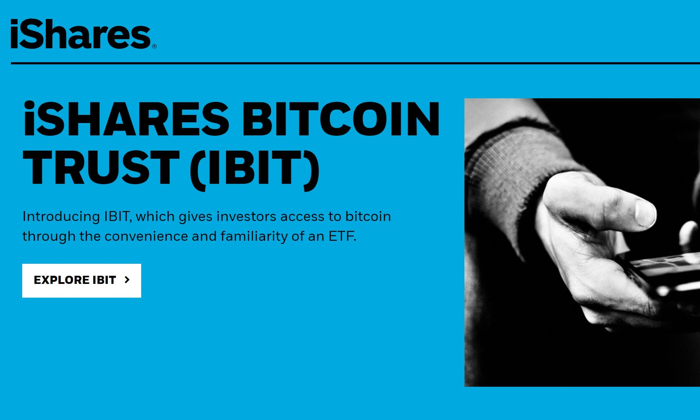Crypto privacy is a critical yet often overlooked aspect of the burgeoning blockchain ecosystem, yet it holds enormous significance for users navigating today’s digital financial landscape. With the rise of decentralized finance, ensuring crypto security has become paramount, as many individuals desire a user-friendly experience without sacrificing their financial transactions privacy. Innovating blockchain privacy solutions is essential to facilitate seamless interactions while protecting sensitive data from prying eyes. By making privacy in crypto as intuitive as possible, we have the potential to shift user behavior from centralized exchanges to decentralized platforms, thereby reclaiming individual autonomy. The challenge lies in simplifying the complexities surrounding privacy, which is crucial for fostering broader adoption in the crypto community.
When discussing the intricacies of securing personal information in the cryptographic realm, the term ‘financial data protection’ may come to mind. Increasingly, as blockchain technology matures, the need for practical tools that enhance user confidentiality in financial dealings becomes evident. Users are not only demanding straightforward interfaces but are also seeking reliable solutions to shield their transaction histories from unwanted scrutiny. As the ecosystem evolves, embracing innovative technologies focused on maintaining anonymity will be vital to empower users within the decentralized finance landscape. Addressing the barriers to entry for individuals unfamiliar with the intricate world of crypto contributes significantly to the broader conversation about maintaining user autonomy and redefining financial privacy.
The User Experience Dilemma in Crypto Privacy
User experience (UX) is paramount in the blockchain landscape, particularly when discussing crypto privacy. The convoluted processes and extensive technical jargon surrounding privacy solutions deter potential users from exploring decentralized financial systems. When platforms fail to deliver a seamless experience, users are often forced to rely on centralized exchanges that prioritize simplicity over privacy. As a result, the core principles of decentralization and autonomy that drove the crypto movement can become obscured.
The imperative for user-friendly crypto wallets becomes clearer when we observe how traditional banking systems operate. Customers are accustomed to simple experiences where privacy is baked into financial transactions without additional effort. Thus, if crypto privacy solutions can enhance their user interfaces and streamline processes, we will see a transformation where users feel empowered and secure while managing their finances in a decentralized context.
Decentralized Finance: Simplifying Privacy for Wider Adoption
Decentralized finance (DeFi) has the potential to revolutionize the way we approach financial transactions. However, the complexities tied to current privacy methods create a significant barrier to adoption. Users are often intimidated by the technology involved in securing their transaction data, leading many to bypass decentralized options in favor of centralized exchanges, which while easier to navigate, compromise on privacy.
By leveraging user-centered design principles and embracing blockchain privacy solutions that are easy to navigate, the DeFi landscape can become more appealing to everyday users. The development of intuitive multi-chain tools, which allow seamless interaction across various blockchains, will further dismantle these barriers. This shift towards simplicity can ignite mass adoption of decentralized finance, positioning it as an accessible alternative to traditional banking.
The Importance of Blockchain Privacy Solutions
As the demand for crypto privacy solutions increases, it becomes crucial to implement robust blockchain privacy features that cater to the needs of all users. Current solutions often require excessive effort and technical understanding, pushing users away from exploring the wide array of benefits that crypto offers. The key to success lies in providing solutions that not only secure user data but do so in a user-friendly manner that encourages widespread use.
Innovative blockchain privacy solutions should integrate seamlessly into existing user workflows, allowing individuals to protect their financial transactions with minimal disruption. By creating a more coherent ecosystem where privacy is prioritized, the technology can attract a larger audience that is currently hesitant about engaging with cryptocurrencies due to privacy concerns.
The Road to User-Centered Crypto Privacy
To truly address the needs of users in the crypto space, we must shift our focus toward user-centered design in privacy solutions. The Fogg Behavior Model highlights the importance of ensuring that users have the ability to access privacy features without facing overwhelming hurdles. Rethinking the approach to user experience can provide a path to simplify the often complex nature of securing privacy in the crypto world.
Implementing user-friendly protocols and clear educational resources is vital to demystifying crypto privacy. As users gain confidence in managing their financial data, they will be less likely to revert to centralized platforms that compromise their privacy. Thus, fostering a culture of transparency and user empowerment will be essential in promoting mass adoption of decentralized financial solutions.
Bridging the Gap Between Traditional Finance and Crypto
Historically, privacy has been a cornerstone of financial services, with traditional banks providing default protections for their clients’ transactions. This contrasts sharply with the current state of crypto, where users often sacrifice convenience for privacy. Bridging this gap requires a concerted effort to enhance privacy features in a way that matches or exceeds those found in traditional finance.
The expectation of privacy in financial transactions is shifting towards the crypto sector, and it’s up to developers and service providers to meet these demands. By implementing straightforward privacy mechanisms, crypto platforms can reassure users and create an environment where financial interactions are both private and user-friendly, promoting greater participation and trust in decentralized alternatives.
Overcoming the Complexity Barrier in Crypto Privacy
Despite advances in crypto technology, the complexity related to maintaining privacy remains a significant barrier for many users. The overwhelming choices and the intricate setup of privacy solutions serve to discourage newcomers who might otherwise be interested in participating in the space. By breaking down these barriers and simplifying the process, the industry can win over users who value privacy as a fundamental right.
Creating a cohesive and easy-to-use framework for managing privacy in cryptocurrencies will be essential as the market matures. By focusing on user-friendly interfaces and clear instructions, blockchain service providers can help facilitate an onboarding process that demystifies crypto privacy, allowing users to feel more secure and equipped to explore the vast world of decentralized finance.
User Expectations and the Privacy Landscape
In a world where digital interactions are increasingly scrutinized, people naturally expect a certain level of privacy in their financial transactions. The disconnect between crypto privacy expectations and what is currently available poses challenges for user engagement and adoption. Many users may understand the ethos behind cryptocurrencies but become frustrated when they encounter cumbersome processes to secure their privacy.
To create an ideal user environment, solutions must align with the basic expectations of privacy similar to those users experience in traditional banking. Once this is achieved, users are more likely to adopt crypto solutions that prioritize their financial anonymity, further driving the adoption of decentralized finance as an appealing alternative.
Integrating Privacy into the Blockchain Ecosystem
A significant challenge faced by the crypto industry is the integration of privacy features across various blockchains. As users operate within a fragmented environment, it becomes increasingly complex to maintain privacy protocols consistently. The emergence of integrated privacy tools that can work seamlessly across multiple platforms is essential for removing this obstacle.
An all-in-one blockchain privacy solution can empower users with unparalleled control over their financial data, regardless of the blockchain they choose to operate on. This not only simplifies the user experience but elevates the overall standard of privacy within the crypto ecosystem, ultimately fostering a culture of security and reliability.
Future Innovations in Crypto Privacy
The future of crypto privacy hinges on innovative solutions that prioritize user experience while offering robust security features. The interplay between user-friendly crypto wallets and seamless access to privacy tools can inspire greater confidence among users hesitant about engaging with digital currencies. As technology progresses, we will likely see the emergence of simplified protocols capable of protecting transaction data without sacrificing user engagement.
Additionally, collaboration between developers and user experience experts will be crucial in crafting solutions that resonate with a broader audience. By maintaining a focus on innovative designs and intuitive functionalities, the next wave of crypto privacy solutions can empower users to take back control of their financial narratives, reinforcing the core principles of decentralization and financial freedom.
Frequently Asked Questions
What are the best blockchain privacy solutions for secure transactions?
The best blockchain privacy solutions include tools like zk-SNARKs and confidential transactions, which enhance financial transactions privacy by concealing amounts and transaction details. Platforms that implement these solutions prioritize user-friendly crypto wallets, allowing for simple integration and use.
How can user-friendly crypto wallets enhance crypto privacy?
User-friendly crypto wallets can enhance crypto privacy by providing intuitive interfaces that mask user transactions and shield sensitive information. These wallets often incorporate advanced encryption techniques, allowing users to maintain their financial transactions privacy without needing extensive technical knowledge.
What is the importance of privacy in decentralized finance (DeFi)?
Privacy in decentralized finance (DeFi) is crucial as it empowers users with control over their financial information, safeguarding against unauthorized access. It ensures that transaction details remain confidential, which aligns with the core principles of crypto security and enhances overall user trust in blockchain technologies.
Why is crypto privacy considered complex by many users?
Many users find crypto privacy complex due to the intricate technical jargon and varied solutions required for different blockchains. This fragmentation complicates user experience, making it difficult for individuals to maintain financial transactions privacy, which discourages broader adoption of privacy-centric solutions.
How do decentralized finance platforms address the issue of privacy?
Decentralized finance platforms address privacy issues by implementing innovative blockchain privacy solutions that enable users to transact without disclosing their information. These platforms often focus on user-centered designs, allowing for seamless integration of privacy features into familiar interfaces.
What challenges do users face when ensuring crypto privacy?
Users face challenges such as the need for technical expertise to navigate complex privacy solutions, the lack of user-friendly crypto wallets designed for privacy, and fragmented tools across different blockchains that increase cognitive load, making it difficult to maintain financial transactions privacy.
What role do transactions play in enhancing crypto security?
Transactions play a pivotal role in enhancing crypto security by utilizing cryptographic techniques that ensure the integrity and confidentiality of transaction data. Effective privacy measures prevent third parties from accessing sensitive financial information, thus bolstering overall crypto security.
What are the primary factors influencing the adoption of privacy features in crypto?
The primary factors influencing the adoption of privacy features in crypto include user motivation to protect their financial information, the ease of use of privacy solutions, and the perceived complexity of implementing those features. Simplifying the process is essential for mass adoption.
How does the Fogg Behavior Model relate to crypto privacy adoption?
The Fogg Behavior Model relates to crypto privacy adoption by illustrating that user motivation, ability, and prompts must converge for behavior change to occur. In crypto privacy, while users may be motivated to protect their information, if the ability is perceived as too complex, they may abandon privacy protections altogether.
Are there privacy-focused cryptocurrencies that simplify the user experience?
Yes, privacy-focused cryptocurrencies like Monero and Zcash aim to simplify the user experience by incorporating built-in privacy features and user-friendly interfaces. These cryptocurrencies ensure that financial transactions privacy is maintained without the need for complex setups or technical knowledge.
| Key Points | Details |
|---|---|
| Complexity Barrier | Users face complicated privacy solutions that require advanced knowledge, leading to a default reliance on centralized exchanges. |
| User-Centered Privacy | The Fogg Behavior Model illustrates that motivation alone is not enough; users need accessible privacy solutions to act. |
| Fragmented Solutions | Different blockchains require various tools for privacy, increasing user cognitive load. |
| Privacy Paradox | Unlike traditional finance, crypto lacks privacy as a default, creating a barrier to user adoption. |
Summary
Crypto privacy is a pressing concern as it remains complicated for users to implement effectively. Despite the growing awareness of privacy’s importance in financial transactions, many users find existing solutions too complex. To foster wider adoption, the crypto industry must simplify privacy measures, ensuring they are user-friendly and accessible. Bridging the gap between traditional financial privacy standards and crypto will be vital for encouraging more individuals to engage with decentralized systems.
Crypto privacy is an essential aspect of the digital currency landscape, as it ensures the security of transactions and protects users’ financial data from prying eyes. The growing demand for privacy in crypto reflects a need for advanced crypto security measures that are both effective and user-friendly. As decentralized finance (DeFi) continues to gain traction, the integration of robust blockchain privacy solutions becomes increasingly vital. Many users are looking for user-friendly crypto wallets that prioritize privacy, enabling them to maintain control over their financial transactions without unnecessary complexity. Ultimately, as privacy in crypto becomes simpler and more accessible, it will pave the way for widespread adoption and trust within the crypto community.
In the realm of digital currencies, safeguarding financial information has become a cornerstone of user experience. The quest for confidentiality in this ecosystem not only involves intricate techniques but also a push towards improving user interactions with various technologies. As financial operations increasingly shift towards decentralized platforms, the spotlight is on innovative privacy solutions that enhance transaction security. The vision is to create intuitive wallets that empower users to engage with their digital assets securely. Furthermore, as potential users navigate through this complex digital landscape, the necessity for straightforward and effective privacy measures is more imperative than ever.
















Leave a Reply